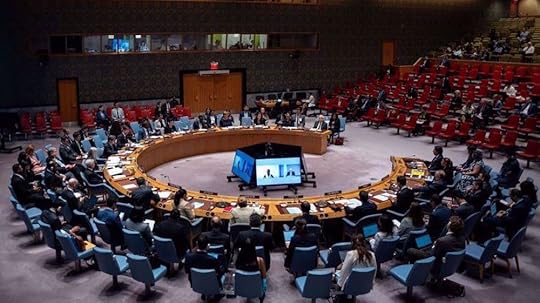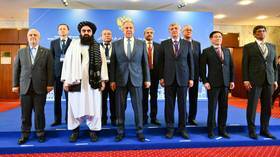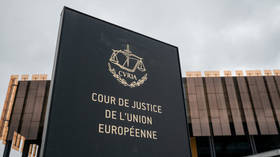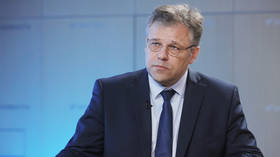Stuart Jeanne Bramhall's Blog: The Most Revolutionary Act , page 20
August 29, 2025
US denies visas to Palestinian officials, ahead of UN meeting

Representatives from various countries attend a meeting of the UN Security Council on Palestine at the UN Headquarters in New York on August 27, 2025. (Photo by Reuters)
Press TV
The United States has announced it will deny and revoke visas for members of the Palestinian delegation ahead of the United Nations General Assembly in September.
The leaders of the Palestinian Authority (PA) and Palestine Liberation Organization (PLO) will not be allowed to attend the UN General Assembly scheduled for next month at the United Nations headquarters in New York City, US Secretary of State Marco Rubio said on Thursday.
Rubio justified the unprecedented move by citing US laws that bar recognition of Palestinian statehood and impose sanctions on Palestinians for payments to prisoners and resistance fighters.
According to internal documents reviewed by Fox News, the decision affects senior officials from both the PA and the PLO, including President Mahmoud Abbas.
Permanent staff of the Palestinian UN Observer Mission, however, will be exempt under US treaty obligations.
The decision reflects “national security interests,” US State Department spokesperson Tommy Pigott said, adding that the PA and PLO leaders must repudiate “terrorism” and unilateral statehood efforts before they can be considered partners for peace.
The decision marks the first time the US State Department has blocked an entire delegation from participating in the UN General Assembly.
Six European countries to recognize Palestine: Irish, Spanish leadersWashington said the measure aims to prevent Palestinian leaders from using the UN platform to advance a constitutional declaration of independence.
[…]
Via https://www.presstv.ir/Detail/2025/08/29/753997/US-denies-visa-palestine-officials
Turkey cuts all trade ties, closes airspace and ports to Israel over Gaza genocide

Turkish Foreign Minister Hakan Fidan speaks during a press conference in Istanbul, Turkey on July 26, 2025. (Photo by Reuters)
Press TVTurkish Foreign Minister Hakan Fidan announced that Turkey is closing its airspace and ports to Israeli aircraft and ships, and severing all economic and trade ties with Israel over its genocidal war on Gaza.
Fidan made the remarks during an address to the parliament on Friday, where he was apparently summarizing steps that Turkey has already taken against Israel or has started to implement over the regime’s bloody onslaught on Gaza, which has so far killed more than 63,025 Palestinians.
“We have totally cut our trade with Israel, we have closed off our ports to Israeli ships and we are not allowing Turkish vessels to go to Israel’s ports,” Fidan told an extraordinary parliamentary session on Israel’s attacks on Gaza.
“We are not allowing container ships carrying weapons and ammunition to Israel to enter our ports, and airplanes to go into our airspace,” he added.
Clarifying the minister’s remarks, a Turkish diplomatic source told AFP that Turkey’s airspace was “closed to all aircraft carrying weapons (to Israel) and to Israel’s official flights.”
 Israel fumes as UK bars its officials from London arms fair amid Gaza genocide
Israel fumes as UK bars its officials from London arms fair amid Gaza genocideLast week, Reuters reported that Turkish port authorities had begun informally requiring shipping agents to submit letters confirming that vessels are not linked to Israel and are not carrying military or hazardous cargo bound for the occupying entity.
According to the report, Turkish-flagged ships would be barred from calling at ports in the occupied territories.
In his speech, Fidan said Israel is deliberately making Gaza uninhabitable “to force its people to leave.” He also noted that the regime opposes the emergence of a “new and strong Syria”, vowing that Ankara would not allow such a policy to continue.
Turkey has been a key backer of various militant groups opposing Syria’s former President Bashar al-Assad in recent years, most notably the Hayat Tahrir al-Sham (HTS), which toppled Assad’s government last December.
Ankara had already declared a halt to all trade with Israel and called for international measures against the regime.
[…]
Via https://www.presstv.ir/Detail/2025/08/29/753996/Turkey–airspace-Israeli-flights-cuts-ties
Russia Takes Afghanistan Without Firing a Single Shot

Iranian Ambassador to Afghanistan Hassan Kazemi Qomi, acting Afghan Foreign Minister Amir Khan Muttaqi, Russian Foreign Minister Sergey Lavrov and Russian Presidential Envoy for Afghanistan Zamir Kabulov at the Moscow format consultations on Afghanistan, Moscow, Russia, October 4, 2024. © Sputnik/Kristina Kormilitsyna
By Farhad Ibragimov
In the post-American vacuum, Moscow doesn’t waste time
When Russia recognized the Islamic Emirate of Afghanistan last week, it didn’t just open a new embassy – it opened a new geopolitical front. For the first time since the Taliban’s return to power in 2021, a major world player has gone beyond informal contacts and embraced Kabul’s de facto rulers as legitimate partners.
On July 1, Taliban envoy Gul Hassan presented copies of his credentials to Russian Deputy Foreign Minister Andrey Rudenko. Two days later, Moscow made it official: the Islamic Emirate was now recognized – diplomatically, politically, and symbolically.
The move followed a crucial domestic decision in April, when Russia removed the Taliban from its national list of terrorist organizations – a status that had persisted for more than twenty years. The Foreign Ministry framed the recognition as a pragmatic step toward security cooperation, economic dialogue, and regional stabilization.
In Kabul, the reaction was swift. The Taliban welcomed the Russian gesture as a possible catalyst for wider international engagement. They had reason to – despite harsh rhetoric, even the West has kept indirect channels open. But no one had dared take the leap. Until now.
This isn’t Russia’s first chapter in Afghan affairs. Back in 2021, it kept its embassy running while Western diplomats fled. And long before that, in 1989, Soviet troops withdrew from a decade-long war against the mujahideen, many of whom would go on to form the core of the modern Taliban. In that light, Moscow’s latest decision seems less like a departure and more like continuity by other means.
Security through realismFor Moscow, recognition is not just about diplomacy – it’s about security. With formal ties in place, Russia now has a channel for demanding real cooperation from the Taliban on issues that matter most: containing radical groups and protecting Central Asia’s fragile stability.
The urgency is not theoretical. In March 2024, a deadly terrorist attack on Crocus City Hall shook the Russian capital. According to official reports, the perpetrators were linked to Khurasan Wilayah – a branch of ISIS that considers the Taliban too moderate and Russia an enemy.
This incident shifted the calculus in the Kremlin. If the Taliban control the ground, then working with them – however distasteful to some – becomes a strategic necessity. In 2024, Vladimir Putin publicly referred to the Taliban as a partner in the fight against terrorism – a signal that Moscow views them not as a problem, but as part of the solution.
Recognition is a way to formalize that logic – to move from ad-hoc contacts to structured expectations. Russia is not simply offering legitimacy; it is also asking for responsibility.
Trade follows diplomacyWith recognition comes access – and Afghanistan has plenty to offer. Rich in lithium, rare earth elements, and untapped mineral wealth, the country has become a target for global economic interests. Now that formal ties are in place, Russian companies can enter the market with legal cover and diplomatic support.
But this isn’t just about minerals. It’s also about momentum. Russian exports are already flowing into Afghan markets, while Afghan agricultural products – from dried fruits to herbs – are showing up on store shelves in Russian regions. According to the Financial Times, Moscow is quietly building a trade corridor while others hesitate.
Geography does the rest. Afghanistan sits at a crossroads – a land bridge between Central and South Asia, offering future access to Pakistan, India, and the Indian Ocean. For Russia, this is about more than strategy. It’s about logistics. In an era of sanctions and shifting trade routes, every new corridor matters.
Recognition is Moscow’s ticket in – and it wants to be first at the table.
While the West hesitates, Russia buildsIn Washington and Brussels, Afghanistan is still viewed through the lens of defeat – a retreat, a failure, and a lingering embarrassment. Officially, the Taliban remain pariahs. Unofficially, backchannels are open. Diplomats talk, intelligence agencies coordinate. But no Western country has dared take the next step.
Russia just did.
Could this provoke new sanctions from the US or EU? Perhaps. But with Russia already under one of the harshest sanction regimes in modern history, the cost of further penalties is marginal. The ceiling has already been reached.
Instead, recognition gives Moscow first-mover advantage – both in Kabul and across the region. While others worry about headlines, Russia is shaping realities on the ground. It is doing so not just with gas and guns, but with memory: in Central Asia, Russia still carries weight as a former security guarantor and post-Soviet stabilizer. That credibility now returns to the table.
From war broker to regional architectRussia has done this before. In 1997, it helped end a brutal civil war in Tajikistan by brokering a deal between warring factions. Those efforts are still remembered in Dushanbe – and they echo today.
Tensions between the Taliban and Tajik authorities remain high. But Russia, trusted by both sides and embedded in regional security structures, is uniquely positioned to mediate. The same applies to Afghanistan’s rocky relations with Turkmenistan, where border disputes and political distrust linger.
This is where recognition becomes more than a headline – it becomes leverage. Moscow can now convene, propose, and shape talks that others can’t. While Western powers watch from afar, Russia is turning Afghanistan from a global problem into a regional process.
The ultimate play? Energy. With its early commercial footprint in Kabul and longstanding vision of an Eurasian energy corridor, Moscow sees Afghanistan not just as a risk to manage – but as a bridge to build.
[…]
Via https://www.rt.com/news/621200-russia-took-afghanistan-without-firing/
US deports migrants to Rwanda
 FILE PHOTO. © John Moore / Getty Images
FILE PHOTO. © John Moore / Getty ImagesRT
Rwanda says three of the deportees have requested to return to their home countriesRwanda has received seven migrants deported from the US under a new bilateral agreement that could see the East African nation host hundreds of people Washington has declared ineligible to remain on its soil.
The first group arrived in Kigali in mid-August, Rwandan government spokesperson Yolande Makolo said in a statement on Thursday. They are receiving accommodation, healthcare, and training support, with assistance from the International Organization for Migration (IOM) and local services, she added.
“Three of the individuals have expressed a desire to return to their home countries, while four wish to stay and build lives in Rwanda,” Makolo said, without disclosing their nationalities.
The administration of US President Donald Trump has pursued third-country resettlement agreements to deport asylum seekers as part of a wider crackdown on illegal immigration, despite criticism and protests.
Washington reportedly reached a deal with Kigali in June for the landlocked country to take up to 250 deportees whose home states refused to receive them. Makolo noted that Rwanda’s decision was informed by its own history with the “hardship of displacement,” adding that each individual proposed for relocation would be vetted and approved by the government.
The development makes Rwanda the latest African country to receive deportees under the Trump administration’s removal agreements, following a US Supreme Court ruling that permitted the transfers. The Department of Homeland Security has already deported five people it described as “barbaric criminals” to Eswatini, and eight others to South Sudan. Uganda has also reportedly agreed to a deal with Washington to host migrants, provided they have no criminal records.Kigali previously reached a controversial pact with Britain in 2022 to receive thousands of undocumented migrants from the UK – a scheme that was scrapped last year by the new British government. The UK had paid Rwanda £240 million (about $305 million) and built facilities to house the asylum seekers.
While it remains unclear whether the latest arrangement with Washington includes a financial component, a Rwandan official said earlier this month that Kigali will receive a grant from the US in return, without disclosing the amount.
[…]
Via https://www.rt.com/africa/623661-rwanda-receives-us-deported-migrants/
US lawmakers probe Wikipedia over bias claims
 FILE PHOTO. Wikipedia website internet blackout in 2012. © Getty Images / jcamilobernal
FILE PHOTO. Wikipedia website internet blackout in 2012. © Getty Images / jcamilobernalRT
The platform has been accused of pushing anti-Israel and anti-Ukraine narratives and promoting hate through its ‘early life’ sections
US lawmakers have opened a probe into Wikipedia after it was accused of spreading anti-Israel and anti-Ukraine narratives, and of promoting “coded hate” through its ‘early life’ sections. The platform’s credibility has long been questioned over an alleged left-leaning bias.
On Wednesday, the House Oversight Committee and the Subcommittee on Cybersecurity, led by Republicans James Comer and Nancy Mace, formally requested that the Wikimedia Foundation provide records of editing activities and explain its methods for addressing organized campaigns to shape content. The lawmakers said the probe follows multiple complaints about attempts to “manipulate information on the Wikipedia platform for propaganda aimed at Western audiences.”
The Anti-Defamation League (ADL) – a self-described watchdog against bigotry, anti-Semitism, and discrimination – previously complained that Wikipedia contained anti-Israel bias, citing what it described as a campaign by 30 editors seeking to highlight criticism of the Jewish state.
The Atlantic Council think tank has also claimed that pro-Kremlin and anti-Ukrainian messages have been pushed on the platform through hyperlinks from Russian-linked outlets.
Investigative journalist Dominic Michael Tripi reported on X on Friday that the commission was allegedly pressuring Wikipedia to remove the ‘early life’ sections of personal pages after the ADL referred to them as “coded hate.” These sections, often listing ethnicity, religion, and birth gender, have been described by the group as weaponized to promote harassment.
The credibility and objectivity of Wikipedia have long been questioned as many users have claimed that its entries, particularly on sensitive cultural and political issues, often reflect a left-leaning bias.
Last year, billionaire Elon Musk branded the encyclopedia as “Wokepedia” and urged people to stop donating to the organization over its disproportionate spending on promoting diversity, equity, and inclusion (DEI) efforts.
Russia has accused Wikipedia of promoting Western-centric narratives. Foreign Ministry spokeswoman Maria Zakharova said last year that the platform almost always reflects a one-sided interpretation of events and even contains outright forgeries.
Wikipedia co-founder Larry Sanger has alleged that the platform has been used by the US intelligence community as an instrument of control to further the agenda of the liberal establishment.
[…]
August 28, 2025
Hungary sues EU over frozen Russian assets sent to Ukraine
 FILE PHOTO. © Harald Tittel / picture alliance via Getty Images
FILE PHOTO. © Harald Tittel / picture alliance via Getty ImagesRT
Budapest’s lawsuit targets the European Council’s decision to tap the immobilized funds for military aid.
Hungary has sued the EU over its decision to use frozen Russian assets to fund military aid for Ukraine, a move adopted despite Budapest’s opposition.
Western nations froze an estimated $300 billion in Russian assets after the escalation of the Ukraine conflict in 2022 – some €200 billion of which is held by Brussels-based clearinghouse Euroclear. The funds have accrued billions in interest, and the West has explored ways to use the revenue to finance Ukraine.
The lawsuit challenges the European Council’s decision last year to channel military aid to Ukraine through the European Peace Facility (EPF), which reimburses countries that send weapons to Kiev.
Implemented in February, the measure directs 99.7% of interest generated from frozen Russian central bank assets to Ukraine, providing an estimated €3-5 billion ($3.5-5.8 billion) annually.
In a case first filed with the EU Court of Justice and later transferred to the General Court, Hungary is demanding to “annul the decision… on allocating funds to assistance measures for supplying military support to the Ukrainian Armed Forces” and to “order the defendants to cover the costs.”
Budapest contends that the EPF acted unlawfully by bypassing its veto, arguing that Hungary is not a “contributing member state.”
“As a result, the principle of equality between Member States and the principle of the democratic functioning of the European Union were infringed because a Member State was deprived, unjustifiably and without a legal basis, of its right to vote,” the filing says.
Hungary opposes the bloc’s unconditional support for Kiev and prefers peace talks to continued fighting. Budapest has repeatedly used its veto to block EU financial and military aid, including a disputed €50 billion package at the end of 2023. The standoff has pushed other EU members to seek ways to sidestep Budapest’s resistance.
Moscow has denounced the asset freeze as “robbery” and a breach of international law, warning it would backfire on the West. Senior Kremlin official Maksim Oreshkin said the freeze had already undermined trust in Western finance, while Russian President Vladimir Putin cautioned that seizing the assets would accelerate a global shift toward alternative payment systems.
[…]
Via https://www.rt.com/news/623618-hungary-frozen-assets-eu-lawsuit/
Finland to Scrap Swastika
 FILE PHOTO: Finland’s Air Force. © Getty Images / Historical / Contributor
FILE PHOTO: Finland’s Air Force. © Getty Images / Historical / ContributorRT
Finland’s Air Force has had the Nazi-associated symbol in its insignia since 1918
The Finnish Air Force is preparing to remove the swastika from its unit flags as part of a wider reform, national broadcaster Yle reported on Thursday. The symbol’s association with Nazism has resulted in “embarrassing situations,” according to a top commander.
The swastika was first adopted by the Finnish Air Force in 1918, years before Adolf Hitler made it notorious as the emblem of the Third Reich. Finnish aircraft bore the blue-on-white design until 1945, when the victorious Allied powers forced its removal after WWII. However, it remained on unit flags, emblems, medals, and even uniforms.
The logo has proved problematic when dealing with foreign allies, including the United States, Colonel Tomi Bohm, commander of the Karelia Air Command, told Yle. Finland joined the US-led NATO military bloc in 2023, followed by neighboring Sweden the next year.
“We could have gone along with this flag as well, but sometimes embarrassing situations may arise with foreign guests,” Bohm said, adding “It may be reasonable to live in the times.”
Air Force headquarters has reportedly already dropped the swastika, and officials expect its removal from other insignia in the coming years.
The swastika is banned or restricted in many countries, particularly Germany, due to its association with Hitler’s regime. Russia has drawn attention to its continued presence in Finland, pointing out in a 2024 report on the glorification of Nazism that the Order of the Cross of Liberty – one of the Nordic nation’s top honors – still carries the design and appears on the presidential standard.
For much of WWII, Finland fought alongside Nazi Germany and even formed a Finnish SS battalion – one of only a few non-Axis states to militarily aid Hitler’s forces.
[…]
Via https://www.rt.com/news/623644-finland-swastika-flag-nazism/
Outrage over crushing New Jersey energy bills threatens to end reign of Dem officials

By JOE HUTCHISON, US NEWS REPORTER
New Jersey residents are up in arms over huge spikes in their energy costs, leading to speculation it could prove fatal for Democrats. The New Jersey’s Board of Public Utilities (BPU) approved a 17-20 percent hike in June for the majority of households in The Garden State.
Republicans in the state have claimed it is tied directly to Democratic Governor Phil Murphy’s move to shut down the state’s nuclear and coal plants in 2017.
Murphy touted offshore turbines as the way forward, but none of them have yet to be completed due to issues around costs.
According to the Wall Street Journal, electric bills in the state now rank as the 12th highest in the nation, with prices 15 percent higher than the national average. The outlet also reported the state is becoming increasingly depending on out-of-state generation to meet the electricity demand.
One resident who spoke with Fox News told the outlet of their horror and confusion over the price gouging.
One woman said: ‘$200 more, I know my electrical bill. I was shocked. So to say the least, I’m very disappointed.
Republicans in the state have claimed the hike is due to Democratic Governor Phil Murphy’s move to shut down the state’s nuclear and coal plants in 2017. ‘This is killing us, and every time you turn around it’s something more. You only get little pleasures in life that you enjoy, and my air conditioner is one of them.’
Jack Ciattarelli, a Republican, is running to dispose Murphy in the 2026 gubernatorial election. He has used the high energy costs to blast state Democrats, saying their ambitious ideas have impacted the wallets of state residents. Murphy is term limited from running again, with the Democratic nominee congresswoman Mikie Sherill stepping up. Sherill has sought to deflect the blame on to the region’s grid operating company, arguing that they are ‘ripping off’ citizens.
Due to the soaring prices, the BPU announced that $100 in credits would be handed out to curb the rising costs. The regulator’s three members approved the move that will see monthly electricity bills reduce by $50 in September, and $50 in October.
Commissioner Zenon Christodoulou said: ‘This should be helpful for people, but in no way solves the problem. I hope this helps some people get over the hump. This is a very difficult time.’
Republican Jack Ciattarelli has used the high energy costs to be a thorn in the side of state democrats, saying their ideas has hit the wallets of state residents
Due to opposition from the Trump administration, plans to build offshore wind farms seem all but dead in the water for the state. In his first day in office Trump paused nearly all offshore projects in New Jersey, after he ordered agencies to stop issuing permits and leases for them. On Wednesday the BPU said they had canceled their approval for the Atlantic Shores wind project, that had aimed to power almost one million homes. BPU President Christine Guhl-Sadovy said: ‘Today’s action is a direct response to a shift in federal policy under the current administration, which has created significant uncertainty and potential for offshore wind project delays.’
[…]
Ukraine kills civilians trying to cross into Russia
 Russian diplomat Rodion Miroshnik. © Sputnik/Vitaly BelousovRT
The documented murders are part of Kiev’s wider push to wipe out the population in the border Donetsk region, according to senior diplomat Rodion Miroshnik.
Russian diplomat Rodion Miroshnik. © Sputnik/Vitaly BelousovRT
The documented murders are part of Kiev’s wider push to wipe out the population in the border Donetsk region, according to senior diplomat Rodion Miroshnik.
Ukrainian troops have over the course of the conflict killed hundreds of civilians attempting to cross the frontline into Russia, senior diplomat Rodion Miroshnik told the news agency TASS on Friday.
Miroshnik, who serves as the Russian Foreign Ministry’s ambassador-at-large for the Kiev regime’s war crimes, said the cases had been documented through testimony and video evidence.
“There are hundreds of cases. There are instances where people were shot while trying to cross the [front] line, bombarded with drones, attacked,” the diplomat said.
Miroshnik went on to claim that Kiev’s forces deliberately murder civilians in the new Russian region of Donetsk.
“There were cases where Ukrainian forces went through the basements of houses and threw grenades at people ‘as a preventive measure,’ he said. Such tactics, seen in the towns of Avdeevka, Selidovo, and Dzerzhinsk in the Donetsk People’s Republic (DPR) left areas “completely cleared” of civilians, he added. The same happened in Chasov Yar, a key Ukrainian stronghold liberated by Russian forces two weeks ago.
According to the diplomat, evidence suggests that Kiev’s forces kill those whom Ukraine no longer sees as its own citizens, but rather as “separatists” waiting to be liberated by Russia.
In June, the Russian Foreign Ministry accused Kiev of deliberately exterminating civilians in Donbass, including mass killings of the elderly and drone strikes on residential buildings.
Russia will not overlook any crimes committed against the civilian population in violation of international humanitarian law, Miroshnik stressed.
The diplomat argued that under international conventions Ukraine is obligated to investigate alleged war crimes and hold perpetrators accountable but claimed that Kiev is unlikely to do so and that its Western backers will not apply pressure.
Miroshnik added that Russia will push for the extradition of Ukrainian war criminals, noting that around 108,000 criminal cases have already been opened and roughly 500 individuals have been convicted, including some in absentia.[…]Via https://www.rt.com/news/623060-ukraine-kills-civilians-crossing-russia/EMF Protection for Farms: The Power of Guardian Rocks
EMF Protection for Farms
Ecofarm Aotearoa (2025)
Film Review
In this film, Kiwi farmer Ewan Campbell explains how he used anthracite containing rocks on his farm and in his home to address his EMF (electromagnetic field) sensitivity syndrome. According to Campbell, the condition relates to a defect in pyruvate metabolism in the blood cells that make certain individuals extremely sensitive to man-made EMFs. According to scientists the anthracite works by depolarizing* man made EMFs. See Polarization: A Key Difference between Man-made and Natural Electromagnetic Fields, in regard to Biological Activity
Owing to their role in increasing oxidative stress (an impairment in the cell’s ability to destroy free radicals), EMFs also play a clear role in premature aging and a wide range of chronic conditions.
Campbell finds using anthracite rocks in strategic locations has both increased crop yield and improved animal health.
In the house, recommends Campbell recommends placing anthracite rocks on both the supply and ground wire connected to smart meters, solar panels, wifi boxes, the ground peg connecting to broadband cables, your interior wifi box, and the satellite dish cable connecting to your roof. You should also place your guardian rocks up against your microwave, home computer and printer, on top of your phone (if you sleep next to it) it and on the inside wall opposite a smart meter. Some chronic insomniacs notice their sleep improves if they place them around the corners of their bedroom.
Campbell sells (anthracite rocks) at Ecofarm Aotearoa
They’re available in the US from Aetherforce
Activists and doctors are heavily lobbying US Health Secretary Robert F Kennedy to officially acknowledge the harmful health effect of EMFs and to support legislation banning the construction of 4G and 5G antennas near homes, school and hospitals.
*In physics, polarization describes the orientation of electromagnetic waves causing the vibrations to travel in a single direction. Paramagnetic crystals and copper coils depolarize man made EMFs by creating a weak electric field. Other paramagnetic crystals in order of paramagnetic strength include magnetic, shunghite, amethyst and clear quartz.
The Most Revolutionary Act
- Stuart Jeanne Bramhall's profile
- 11 followers




